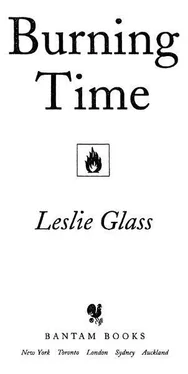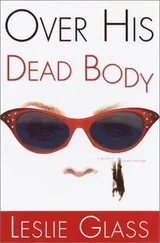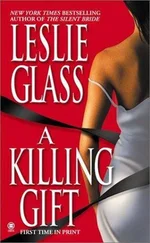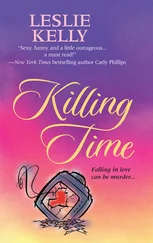She didn’t become uneasy even when the ride took her way east into the dry mountainous area of the North Country. She wasn’t frightened when he stopped far off the road, miles from the last passing car. It wasn’t until he grabbed her unexpectedly from behind and wrestled her to the ground, pulling at her clothes, that the sharp jolt of adrenaline shot through her. And even then she wasn’t terrified. Boys had jumped on her before, lost control and bullied their way into her. Sometimes a girl gambled and lost. It was an old story.
When he started mumbling and hitting her and shoving himself into places in her body nothing had ever been before, it got to be different. Suddenly he was not like a person anymore. She couldn’t talk to him, or fight back in any way. His face was frozen in rage and every part of him was a weapon. He moved her around, twisting her body one way and then another on the rocky ground, trying new things to make her scream louder, beg him to stop. They were little things at first. Then he broke her arm at the elbow, cracked her ribs, and crushed her cheekbone. He kept at it for a long time.
Finally he staked her to the darkening desert ground, her legs together and her arms out straight like a flattened Christ. Until then she thought she would survive. He had a knife, but he didn’t stab her. All the time he was hitting her he had it with him, sometimes in his hand. He made motions with it, but he didn’t stab her. Now she thought he would do it, make all the cuts he threatened to make. She was so afraid of the knife she could hardly breathe.
Then suddenly he seemed to forget the knife. He started doing something else, getting things, muttering to himself. He lit some kind of torch, and a blast of light shot up into the sky. The explosion of heat and light lasted only seconds. Then the flame was extinguished.
He said something that she didn’t hear because she was screaming so loud. He put his foot on her stomach to stop her bucking, and lowered the glowing brand exactly in the middle of her heaving chest. It made a hissing sound as it seared her skin off, eating the soft tissue of her breasts in some places all the way to the bone. Her screams and the smell of burning flesh rose all around.
After she lost consciousness, he untied her and left Ellen Roane nude in the gully, as the desert temperature dropped steadily, and her wounds began to weep.
1
Jason Frank, MD, psychoanalyst, writer, and teacher, stood at the podium for several seconds before speaking. An inch shy of six feet, he looked like a member of the Kennedy clan in his gray pin-striped suit. He had a determined jaw and mouth, straight nose, light brown hair cut short, and wryly humorous brown eyes. He was thirty-eight, and had a forceful intensity that made both the crazy and the sane pay attention to him.
The hundred or so members, trainees, residents, and hangers-on of the Toronto Psychoanalytic Center who had come to hear him speak paid attention to him now.
“Can anybody remember the music in Death of a Salesman?” he asked to begin his lecture on Listening. “What instrument is played?”
The attractive Ph.D. who had offered him her apartment and her body within the first five minutes of meeting him the previous night crossed her legs the other way and tapped her pencil on her knee.
“An oboe?” she asked.
Even though there was a smile on her face, the rat tat tat with the sharp point on her expensive pantyhose indicated to Jason she was still annoyed by his rebuff.
He shook his head, as he had last night. He waited for a few other wrong answers before giving the right one.
“The flute. If it had been an accordion you might well remember it. Why the flute?”
Jason allowed the audience to speculate for a few minutes before he made his point. “It’s vital to see and hear everything because everything has meaning,” he told them. “The background details, both visual and aural, of a projected self are like a symphony orchestra playing in a very special concert. As analysts, we have to be able to identify the individual instruments to understand the nature of the harmony, or cacophony, that’s being played out in each personality.” He smiled.
For example, the young Ph.D. courted rejection from a visiting speaker to fuel her paranoia and deep hostility to men. Someone else might only have seen a pretty woman looking for love. But Jason wouldn’t have been tempted anyway. He was more than happy with his beautiful wife.
He sneaked a look at his watch, suddenly eager to get home to her. He became distracted for a moment as a wave of guilt washed over him, then recovered his concentration. He had three hours before he could get out of there and head for the airport.
“Ah, I’m going to present three segments of taped interviews to show how the interviewing technique is informed by what I’ve noticed about each subject. These are consultations. I’ve never met any of the subjects before.”
Jason hit the button and the first interview began. He was seated opposite a youngish heavy woman. The woman fluffed up her hair for the camera and began to tell about her eating problem. She said she wanted to be a size eight and had tried to lose weight for ten years. Then she gave a list of all the things she ate from eleven at night until one.
“And then what do you do?” Jason asked.
“And then I go into the bathroom and I force myself to vomit.”
In the tape there was a frozen moment as the two looked at each other, and suddenly the woman started to sob.
Jason shut off the tape and went to the blackboard that had been set up for him. He picked up a piece of chalk.
“What are the important things revealed in this interview so far?” Jason asked.
No one volunteered.
“Come on, I absolutely insist. This isn’t school. Get in there and tell me what the important thing is because everyone has patients like this.”
There was a minor shuffling before a hand was raised. Jason nodded.
“She overeats,” a young man said.
“She has bulemia,” a woman added.
Jason wrote, Overeats, Bulemia , and turned back. “What sorts of things does she eat? Let’s make a list of what she eats. What does her refrigerator look like?” He made the list.
“All right. What’s another important thing? I want you not only to tell me your observations about the things she mentioned, but also tell me things she hasn’t mentioned that are directly related to the things she has mentioned. That is, your inferences about what her life is like. So what’s the next important thing because we’re going to have to follow up on her.”
“Well, she’s crying,” offered a bearded man in the back.
Jason wrote Crying on the board. “Okay, what’s your hypothesis about her crying? Why is she crying?”
Now the answers came more quickly.
“Okay,” Jason said finally. “Let’s put the things together that we know.” He made the hypothesis. The subject was thirty years old, living alone, and desperately lonely. Something happened to her ten years ago that was connected with her eating. She was trying to fill herself up with food. Size eight had a special meaning to her. Other people were important to her because she cried when she made eye contact with him after her confession.
“All right, what should I say to her next?” Jason asked.
Everybody had a different answer. Ask about food, ask about loneliness. Ask about refrigerator.
He turned on the tape. “You’re crying,” he had said to the woman. He opted for feelings. And then her story came out. She was a good candidate for psychotherapy.
Next Jason presented the case of a somewhat untidy and disorganized sixty-five-year-old man who began his interview saying he hated the therapist he was seeing. He felt he wasn’t making any progress. Jason turned off the tape and pointed out that the patient identified his frustration as connected with his therapy, but they should not assume that was really what was bothering him.
Читать дальше











